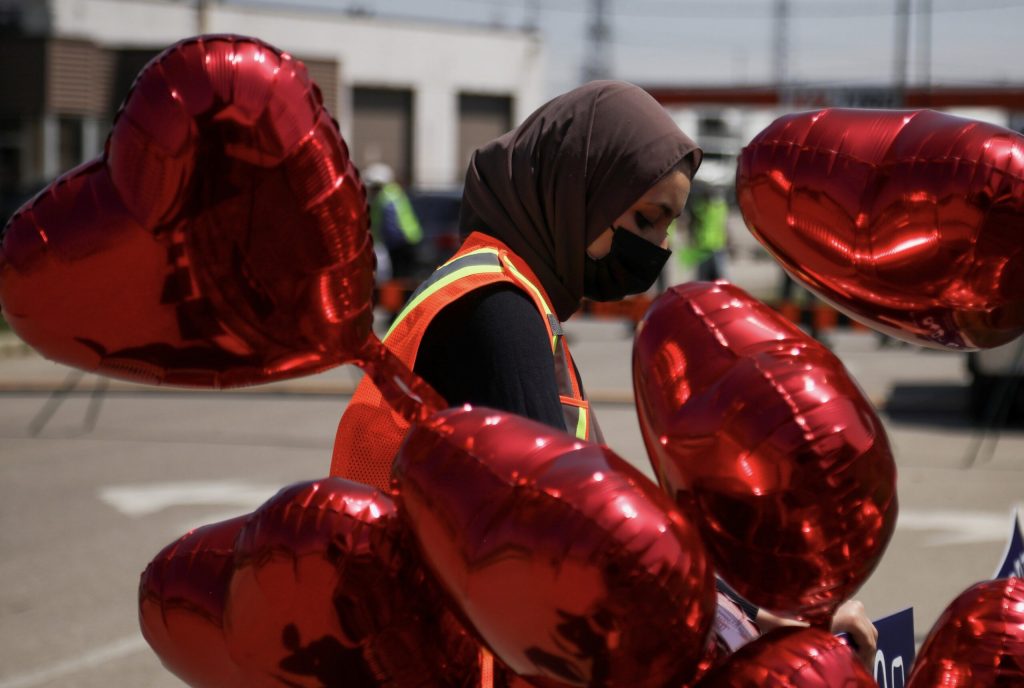Ontario farmer reflects on relationship with Afzaal family

Farmer Patrick Jilesen met the Afzaal family on the soccer pitch.
Salman Afzaal’s brother played three-on-three soccer with him, and over time, the two men struck up a friendship.
After hearing a Muslim family was struck and killed while out for a walk in London on June 6, Jilesen sent a text to his friend offering condolences to the Muslim community.
Shortly after that he heard physiotherapist Salman Afzaal, 46, his wife, Madiha, 44, a civil engineering doctoral candidate at Western University, their daughter Yumna, 15, and Afzaal’s mother Talat Afzaal, 74, had died. They were struck by a truck in what police allege was an anti-Muslim mass killing.
The Afzaal’s nine-year-old son, Fayez, survived and is recovering in hospital.
Nathaniel Veltman, 20, of London, was apprehended and charged with four counts of first-degree murder, one count of attempted murder and terrorism.
“I’m still numb. The Afzaal family visited my farm a few years ago. Salman and his brother wanted to surprise their dad and brought him to inspect the goat they had purchased for a celebration,” tweeted Jilesen.
Jilesen learned about traditional Pakistani bartering to negotiate with the family patriarch. There was rapid chatter until they agreed on a price.
“Having been able to have that experience, that tradition, that he had in his home country here in Canada, it was important to him … and he had some pride in what he was picking out. And I learned a lot,” said Jilesen.
He found a provincially inspected abattoir that would allow the Halal ceremony before they dispatched the animal. There was an air of celebration with family and community members in attendance when he arrived.
“There were kids running around,” he said. “It was a family event, a celebration, just like any other family on a Sunday or Saturday afternoon. It was great. It’s a beautiful day to remember.”
He attended the vigil in London for the Afzaal family, where thousands of people, including Prime Minister Justin Trudeau and Ontario Premier Doug Ford, shared their support and grief.
“We spoke about the thousands of years of farming history in both our families. We spoke about the horror that both our families endured during wartime. We spoke about the experience of xenophobia that both our families endured in Canada,” Jilesen tweeted after the vigil.
“We understood our shared goals to end hate. Our shared love for Canada. Our shared understanding of acceptance. I’ll be numb for a while. # islamophobia #xenophobia #racism is rooted in hate. Nobody is born with hate. We can all choose to love.”
Jilesen said words of condolence only go so far. He wonders what actions society will take to acknowledge and combat the rising tide of xenophobia in Canada.
“In terms of the ag community, if we acknowledge that this exists within our community, we can better understand how to tackle it and deal with it,” he said. “Ignoring it, saying that you’re not racist — it does nothing to help us understand.”
Every member of the agriculture sector needs to talk about it with their families, Jilesen said. He hopes the industry is open to listen, learn, educate and evolve policies and practices to combat hate and become a more welcoming environment for all cultures.
“That’s what I saw in the Afzaal family. They were the salt of the earth. They created a welcoming environment that made me feel really comfortable going to chat with them,” he said. “It’s on me as well, and the farming community to create that welcoming environment (for others).”
Farm groups working on inclusion programs
In January, Beef Farmers of Ontario (BFO) called for an end to systemic racism, discrimination and prejudice based on race, sexual orientation, gender, religion, ability and linguistic bias in the industry.
The announcement was a commitment to action in the beef industry at the board level, the farmer and association level and the broader agriculture sector value chain, said BFO president Rob Lipsett.
“Around our board table, we felt there was a lack of agricultural voices speaking up against discrimination,” said Lipsett. “There were concerns raised that agriculture would be left behind and out of touch with our customers if our voices are not used to speak up on important social issues.”
The BFO’s Diversity, Equity and Inclusion Committee recently partnered with Bloom to create a seven-week learning experience for BFO board members, staff, grassroots producer associations and partner organizations. The first set of participants are mid-way through training, he said.
“Admittedly, there was some initial hesitation from some folks about the training,” said Lipsett. “But everyone has been open-minded, thoughtful and respectful throughout the sessions.”
Participation levels and feedback have been encouraging, said Lipsett, especially given the time commitment and pressures of planting season.
Jordan Miller, BFO director, participated in the Growing Organic Inclusion webinar featuring Jesse Wente, an indigenous journalist, author and advocate.
Joe Dickenson, a BFO director and beef producer, participated in the Diversity Imperative podcast on accountability within organizations, sharing how the BFO has begun the shift to promote and build diversity, equity and inclusion into the organization.
“We recognize and acknowledge this commitment is not a one-time thing,” said Lipsett. “It’s a starting point for what needs to be a continually evolving conversation and effort, and ultimately a culture shift within the industry.”
The Afzaal family was buried June 12 after an outdoor funeral service held at the Islamic Centre of Southwest Ontario. Approximately $2 million was raised collectively through a LaunchGood and GoFundMe account. The money will cover the needs of Fayez into the future, with the remainder invested into a Sadaqa Jariya project in the deceaseds’ names.
A Sadaqa Jariya is a concept of Islam in which three activities continue after death including charity, beneficial knowledge and having a child who will continue to pray for them.
Source: Farmtario.com

